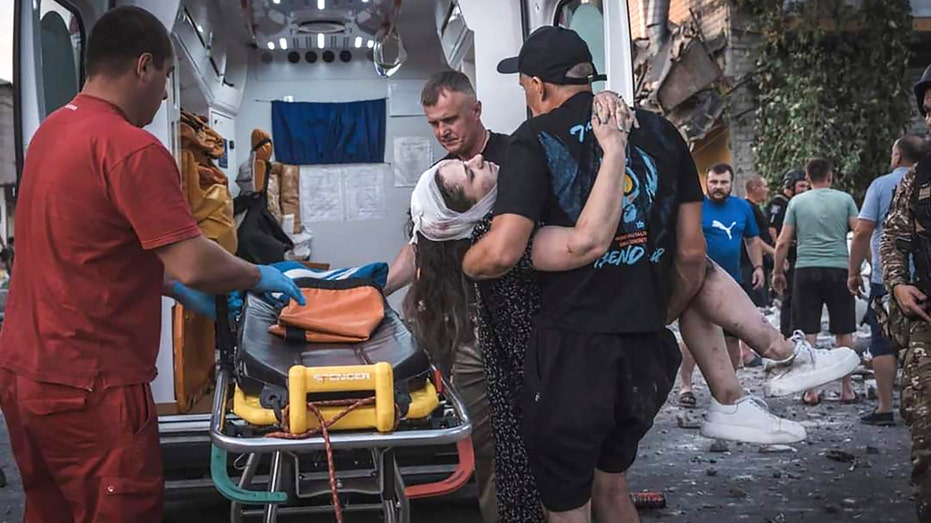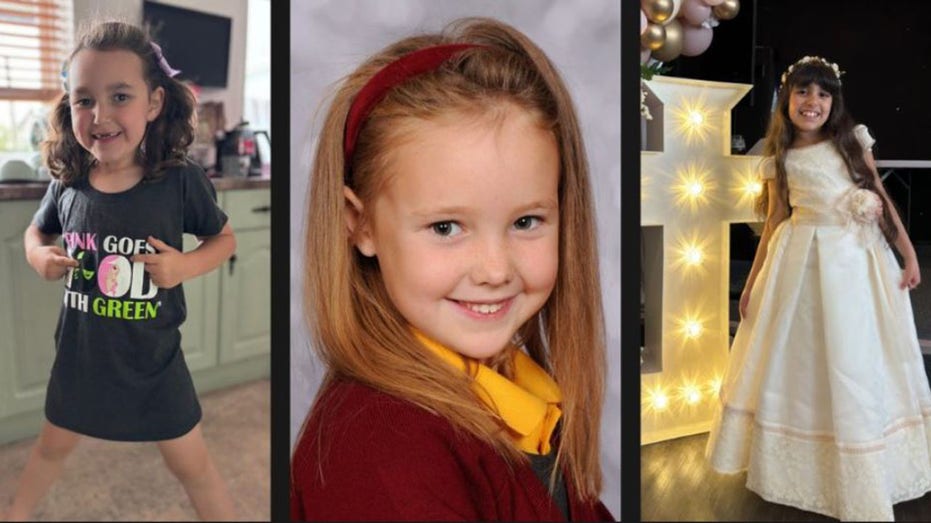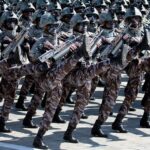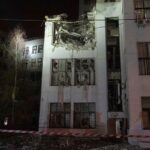Ukrainian officials on Tuesday accused the Kremlin’s forces of targeting rescue workers as the death toll from two Russian missile strikes that slammed into residential buildings in the downtown area of a Ukrainian city climbed to seven.
The dead in the Monday evening strikes in the city of Pokrovsk were five civilians, one rescuer and one soldier, Donetsk Gov. Pavlo Kyrylenko said. Dozens more were wounded, most of them police officers, emergency workers and soldiers who had rushed to the scene to assist residents.
The Russian missiles slammed into the center of Pokrovsk, which is in the eastern Donetsk region that is partially occupied by Russia. Emergency crews were still removing rubble at the scene on Tuesday. The Iskander missiles, which have an advanced guidance system that increases their accuracy, hit within 40 minutes of each other, according to Kyrylenko.
Russia has since the start of the war aimed artillery and missiles at the exact same spot it struck around 30 minutes earlier, often hitting emergency workers who had deployed at the scene. It’s a tactic, called a “double tap” in military jargon, that the Russians also used in Syria’s civil war.
“All of (the police) were there because they were needed, putting their efforts into rescuing people after the first strike,” Ivan Vyhivskyi, chief of Ukraine’s National Police, said Tuesday. “They knew that under the rubble were the injured — they needed to react, to dig, to retrieve, to save. And the enemy deliberately struck the second time.”
Russia’s Ministry of Defense claimed it hit a Ukrainian army command post in Pokrovsk. Neither side’s claims could be independently verified.
Among those injured was Volodymyr Nikulin, a policeman originally from the now Russian-occupied port city of Mariupol.
Arriving at the scene after the first missile strike, Nikulin was wounded in the second strike when missile shrapnel pierced his left lung and left hand.
“Today is not my happy day because Russian criminals committed another awful crime in Pokrovsk,” he said in a video he sent to The Associated Press from a hospital ward in the city.
In the video, he is seen lying on a bed shirtless, dried blood on his side and covering his left hand. He moves with pain to show his injuries.
Pointing his camera to show other injured security forces in the ward, he says: “Look, these are Ukrainian heroes who helped (injured) people.”
Like others, Nikulin was taken to a hospital in the city. But there were so many injured that he was still waiting for surgery on Tuesday morning. He was later transported to a hospital in Dnipro, where he was to undergo surgery to remove the shrapnel.
Nikulin had already witnessed some of the war’s horrors. He helped an AP team escape after Russian troops that had besieged the city entered the downtown area and searched for them.
He featured in the award-winning documentary “20 Days in Mariupol,” a joint project between The Associated Press and PBS Frontline about the earliest phase of the Russian invasion of Mariupol.
The head of the Pokrovsk City Administration, Serhii Dobriak, described the attacks on Pokrovsk as “a typical Russian scenario: 30-40 minutes between missiles.”
“When rescuers come to save people’s lives, another rocket arrives. And the number of casualties increases,” he said in a video comment to local media.
Kyrylenko, the regional governor, said that 12 multi-story buildings were damaged in Pokrovsk as well as a hotel, a pharmacy, two stores and two cafes.
Russian missiles, drones and artillery have repeatedly struck civilian areas in the war. The Kremlin says its forces target only military assets and claims other damage is caused by debris from Ukrainian air defense weapons.
Meanwhile, an overnight attack on the town of Kruhliakivka, in the northeastern Kharkiv region, killed three people and injured nine others, Gov. Oleh Syniehubov said.
Russia also dropped four guided bombs on a village near Kupiansk, in the Kharkiv region, killing two civilians, Ukraine’s presidential office said.
Rescuers later came under fire and two of them were injured, it said.










